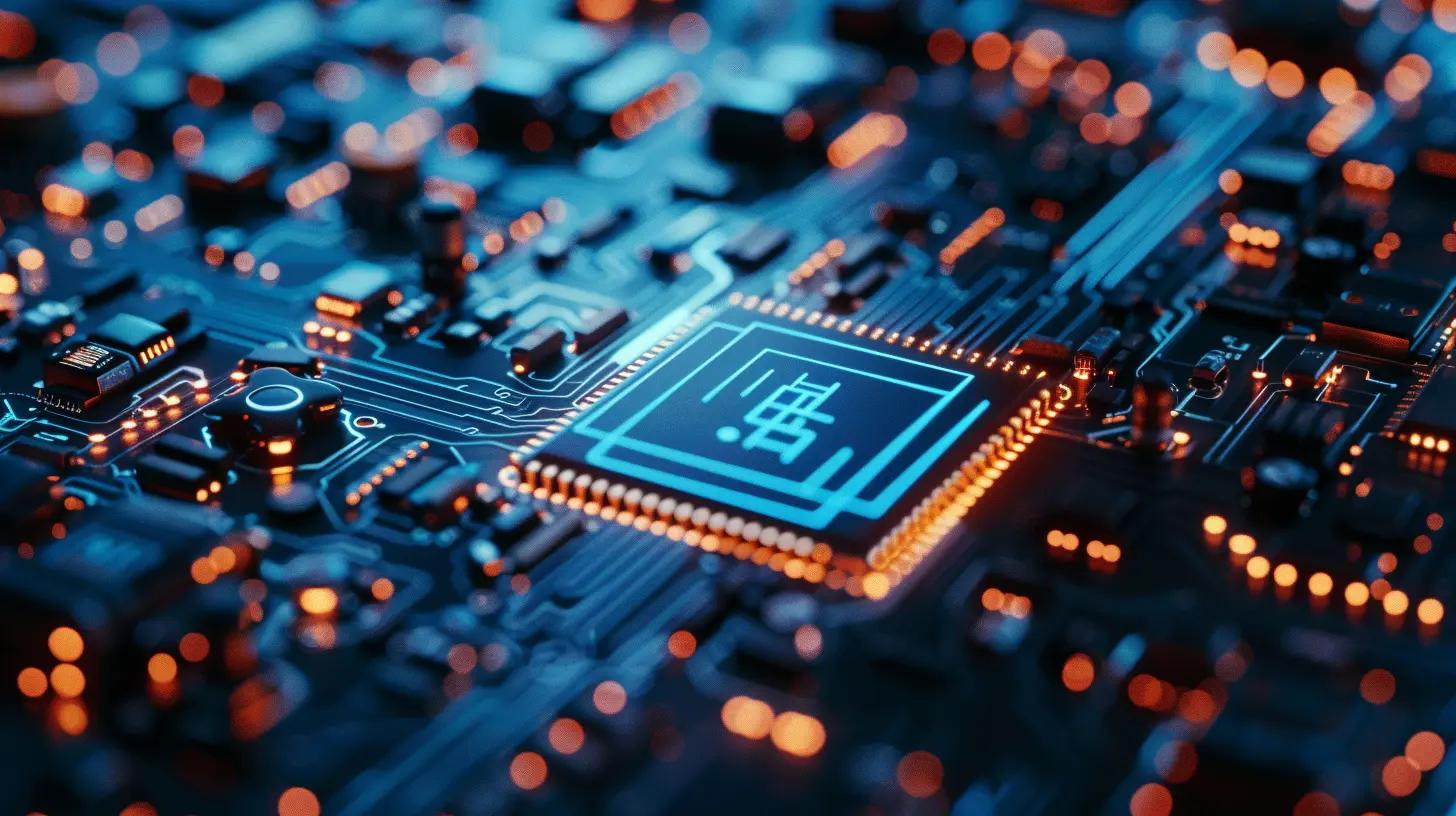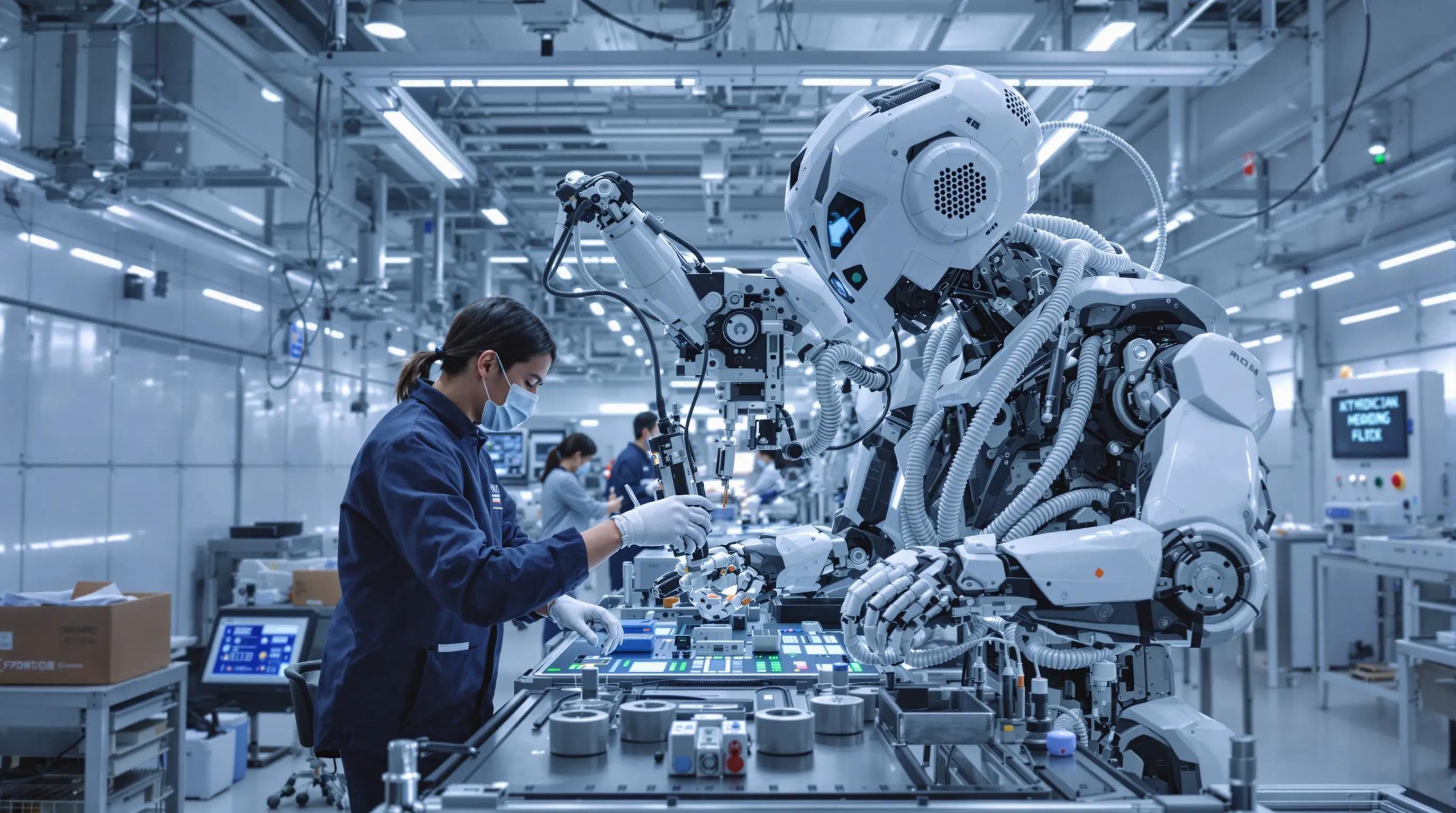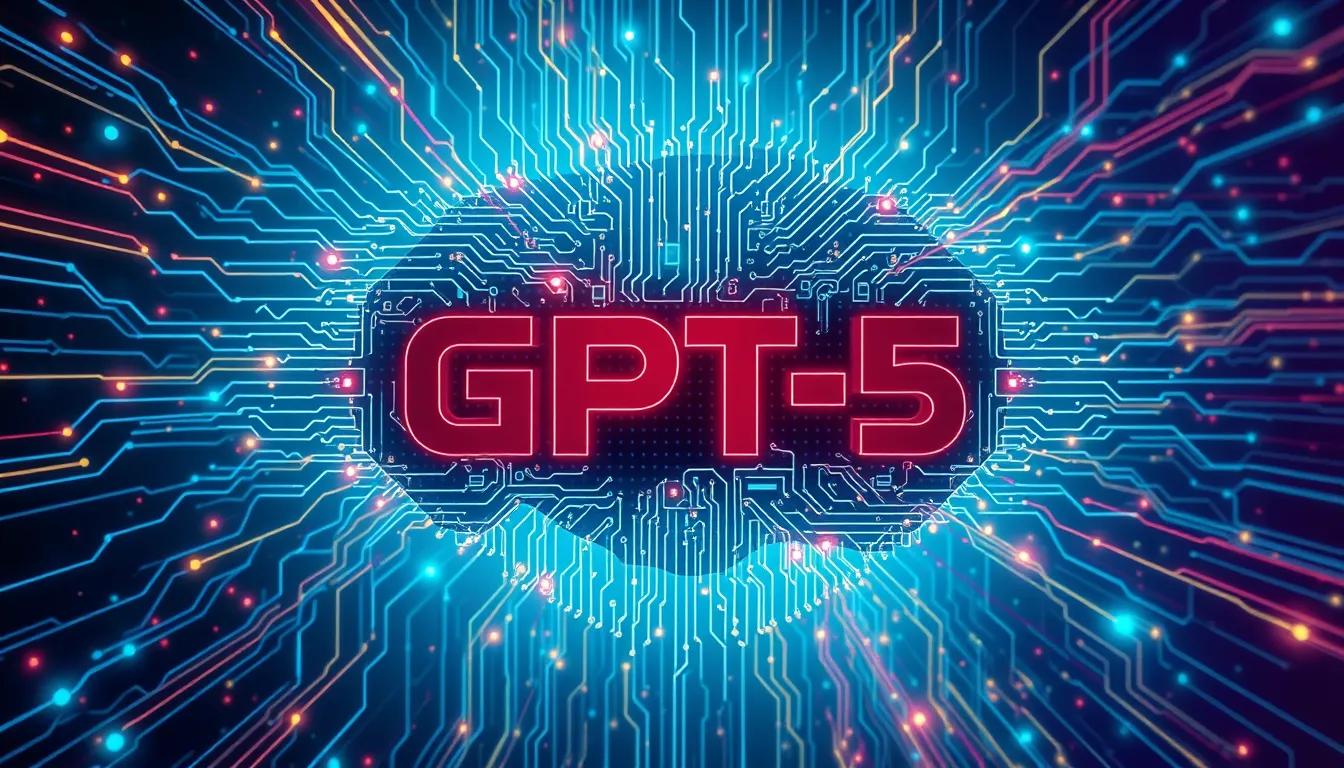April 24, 2024|4 min reading
The Evolution of Chips in AI: How Advanced Hardware Powers the Future

As we navigate through the AI era, the evolution of chips specifically designed for artificial intelligence (AI chips) has been nothing short of revolutionary. These specialized pieces of hardware are the linchpins in AI systems, enabling them to perform complex computations at incredible speeds. This article will guide you through the history of AI chips, their pivotal role in the 2023 AI revolution, and the profound impacts they have on various industries.
The Rise of AI Chips
The journey of AI chips began out of necessity. Traditional CPUs and GPUs, while powerful, were not optimized for the unique demands of AI applications. This led to the development of AI-specific hardware designed to handle parallel processing and massive data sets efficiently.
The Birth of AI Accelerators
In the mid-2010s, the first AI accelerators emerged. NVIDIA’s GPUs and Google’s Tensor Processing Units (TPUs) were among the pioneers, engineered to enhance the performance of AI workloads, particularly deep learning processes. These chips were characterized by their ability to handle multiple operations concurrently, a stark contrast to the linear processing of traditional CPUs.
AI Chip Proliferation
As AI applications infiltrated various sectors, the demand for more specialized AI chips grew. This led to a surge in development from both established tech giants and innovative startups, fueling a competitive market filled with cutting-edge technology designed to push the boundaries of what AI can achieve.
The AI Revolution of 2023
Fast forward to 2023, AI chips have become foundational to technological advancements across sectors:
- Healthcare: AI chips are transforming healthcare by enabling faster and more accurate medical imaging, streamlined drug discovery processes, and personalized treatment planning.
- Autonomous Vehicles: The progress in self-driving technology is largely propelled by AI chips, making autonomous vehicles safer and more efficient.
- Finance: In finance, AI chips facilitate fraud detection, algorithmic trading, and comprehensive risk management.
- Entertainment: In the entertainment industry, AI chips improve content recommendation engines, enhance gaming experiences, and optimize video processing technologies.
Types of AI Chips
AI chips vary widely in their design and application:
- GPUs: Known for their robust parallel processing capabilities, ideal for training deep neural networks.
- ASICs: Custom chips like Google's TPUs that are highly efficient for particular AI tasks.
- FPGAs: Flexible chips that can be reprogrammed to suit different technological needs, bridging the gap between GPUs and ASICs.
- Neuromorphic Chips: These chips mimic human brain processes, making them highly efficient for sensory and decision-making applications.
The Impact on AI Research
AI chips have drastically reduced the time required for training complex AI models, such as language processors like GPT-3, turning months of computing into mere days. This acceleration has not only boosted productivity in AI research but has also led to significant breakthroughs in machine learning and automation.
Challenges and the Road Ahead
Despite their successes, AI chips face several challenges:
- Data Privacy: With more data processing being done on local devices, ensuring that this data remains secure is paramount.
- Ethical AI: There's an ongoing need to design AI systems that are unbiased and fair.
- Hardware-Software Integration: Streamlining the integration between diverse AI chips and software platforms remains complex.
Conclusion
As we look towards the future, AI chips are poised to become even more specialized and efficient. The continuous innovation in this field promises to further integrate AI into daily technology, making devices smarter, faster, and more energy-efficient. The journey of AI chips is a testament to human ingenuity, reflecting our relentless pursuit of advancement and the endless possibilities that AI can bring.
Explore more

NVIDIA and Japan: Driving the AI Revolution in Industry
Explore NVIDIA's role in Japan’s AI revolution, from AI agents to robotics, reshaping industries and powering innovation...

AI Translation Glasses: Breaking Language Barriers with Augmented Reality
Discover how AI translation glasses are transforming real-time communication with instant language translation, powered ...

Everything You Need to Know About GPT-5: The Future of AI
Discover everything about GPT-5, the future of AI, its advancements, and its groundbreaking impact on natural language p...
